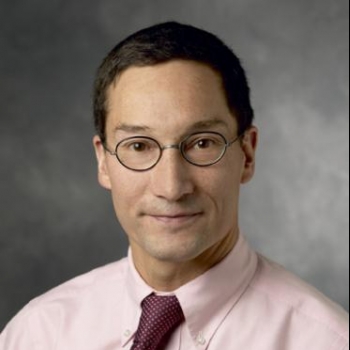Current Research and Scholarly Interests
RESEARCH INTERESTS:
Our research program has several active projects:
1.) Pulmonary Vascular Disease We are studying experimental hypertensive pulmonary vascular disease, aiming to determine the pathophysiologic mechanisms of disease progression, and to identify and develop novel antiproliferative strategies for prevention and treatment. Our group is the first to show that hydrophobic statins such as simvastatin, effectively prevent fatal pulmonary hypertension in rats, and reverse established pulmonary hypertension with neointimal vascular occlusion. The mechanisms of simvastatins efficacy involve inhibition of proliferation and induction of apoptosis of vascular smooth muscle cells. A translational effort to human clinical trials has been initiated at Stanford. Colleague Dr. John Faul (Assistant Professor, PCCM) is directing a randomized, placebo-controlled clinical trial of simvastatin for treatment of Primary Pulmonary Hypertension in the Stanford University Chest Clinic.
2.) Lung Inflammation and Regeneration We are funded by the NIH to study the regulation of cytokine gene expression in bronchial epithelial cells. Inflammatory cytokines contribute to host defenses against pathogens introduced through the airways. Excessive host inflammation in the airways contributes to airway diseases such as asthma and COPD, and inappropriate host inflammatory responses contribute to bronchiectasis in cystic fibrosis and in nontuberculous mycobacterial disease. Together with colleague Dr. Stephen Ruoss (Associate Professor, PCCM), we are characterizing the role of cystic fibrosis gene mutations in susceptibility to nontuberculous mycobacterial pulmonary infections.
We are characterizing lung stem cells capable of self-renewal and of promoting lung regeneration after injury. For this project, we are collaborating with Dr. Judy Shizuru (Associate Professor, Bone Marrow Transplantation, Stanford), and Dr. Chris Contag, expert in imaging (Associate Professor, Pediatrics and Microbiology, Stanford). We are using transgenic donor mice, marked with reporter genes, to identify and enriching stem cells capable of homing to and repopulating lung endothelium and epithelium. This project is funded by the Beckman Center (Stanford).
3. Lung surfactant rheology and cellular oxidative stress - We are studying the biophysical properties of lung surfactant in collaboration with Dr. Gerry Fuller, Professor of Chemical Engineering (Stanford). Dr. Fullers group has a unique instrument capable of measuring the dynamic viscosity of surfactants. Our aims in this collaboration are to establish how hydrophobic surfactant proteins B and C contribute to lowering the surface tension and viscosity of lung surfactant in health and disease. These studies are relevant for the pathogenesis of interstitial lung diseases and pulmonary fibrosis. The studies are funded by the Bio-X Committee at Stanford.
4.) Novel Gene Regulators NF45 and NF90 We are funded by the NIH to continue studies of two novel transcription factors cloned by Dr. Peter Kao in 1994. These proteins were isolated based on the regulation of the IL-2 gene in T-lymphocytes. They are widely distributed and are now recognized to regulate transcription, mRNA splicing, nuclear export, and protein translation. In order to further characterize their biologic functions, our group is the first to generate mice with targeted disruptions (knockouts) of NF45 and NF90. Currently we are characterizing the phenotypes of these mice, focusing on changes in patterns of gene regulation.


